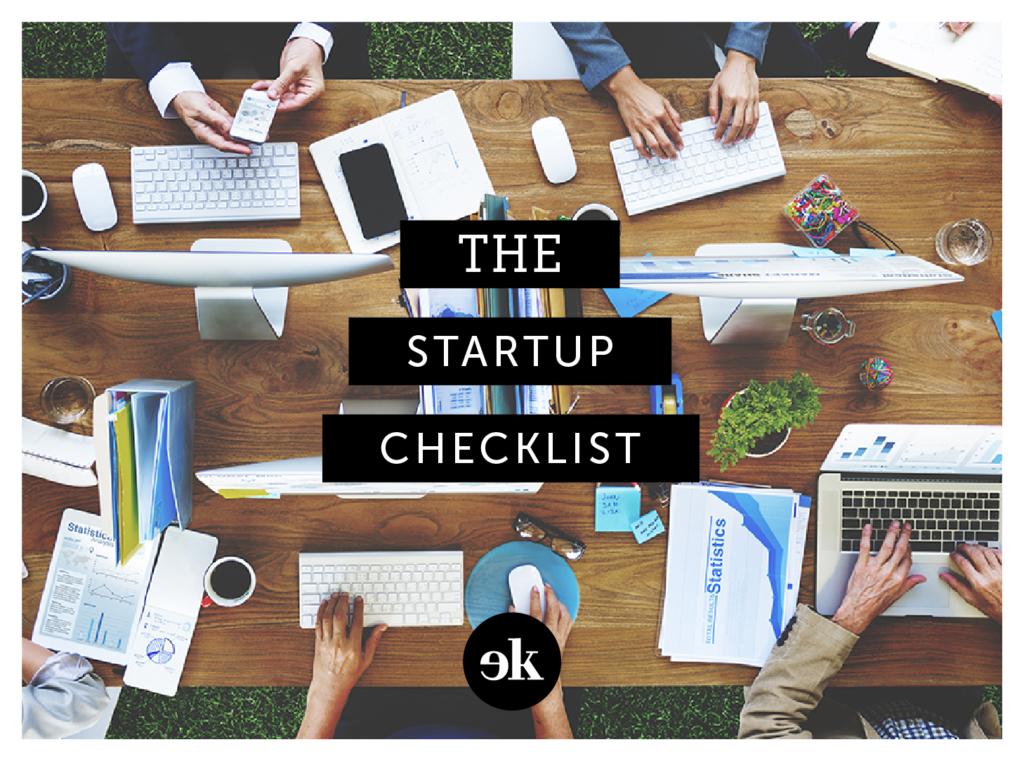
Ethikate’s Principal Lawyer and Trade Marks Attorney Kate Ritchie Explains Why Trade Mark Registration is Crucial for Small Businesses and Startups on 2UE Talking Lifestyle with David Koch.

No matter how organised and motivated you are, it is an inescapable fact that you are restricted by the number of workable hours in a day.
Spending two hours a day answering emails or one day a week preparing invoices for customers, may not be the best use of your time. So what’s the answer? Well, perhaps it’s time to consider outsourcing some of your workload to other people.
Thanks to the internet and the rise in popularity of cloud-based workrooms and storage systems that can be accessed from anywhere in the world, almost any task can now be outsourced. There are plenty of highly experienced freelancers registered online at outsourcing platforms such as UpWork, who are willing to work for reasonable rates and take some of the more time-consuming jobs associated with business administration off your hands.
However, as with everything, there are both pros and cons, which must be considered before deciding which elements of your business are suitable for outsourcing.
Before you start planning an outsourcing strategy for your business, you should think carefully about what positions you need to fill, and what kinds of jobs are typically outsourced.
It is worth considering that generally, you will have more control over full-time employees than contractors and freelancers because they are committed primarily to you and your business. With freelancers, you could end up competing for their time with other clients.
The biggest issue with taking on employees is that they become a fixed cost to your business and you may not be able to fully utilise them on a full-time basis, whereas when you outsource you can manage your expenses in real time and adjust terms in line with your needs in a way you can’t with permanent employees.
If you are considering outsourcing for your business, you will also need to make sure your insurance covers it. Check your professional liability insurance policy to ensure that as well as employees, independent contractors are covered for any claims arising from business-related activities they perform on your behalf.
Here are some of the outsourcing pros and cons:
Pros
Cons
About the Author: Kate Ritchie is a strategically focused Principal Lawyer and Trade Marks Attorney with both commercial and business services and legal experience. Kate has broad ranging competency in all aspects of legal services including intellectual property law, brand protection, commercial and business transactions, negotiation and alternative dispute resolution, internet law, privacy, competition and consumer law and sports law. Kate has worked with top-tier commercial law firms such as Clayton Utz and high profile companies such as Thiess Pty Ltd and Tatts Group. Kate founded Ethikate in 2014 with a passion for providing specialist advice and services in Intellectual Property Law, Trade Marks and Brand Protection Strategies, business and commercial law and entertainment and media law for startups, entrepreneurs and small to medium businesses.
Kate’s interview with Chloe James covered business success, the legal sector, “disruption for disruption’s sake”, startups and small businesses.
Check out the full interview below.

Are you starting 2017 by launching a startup?
There is so much to think about when starting a new business, including business structure, business names, trade marks, tax obligations and more.
Great news! Ethikate has compiled a handy startup checklist for you! Simply register your interest in the new online legal resource, The EK Lab and get your free checklist delivered straight to your inbox.
Register your interest in the EK Lab and receive your free startup checklist here.

By Kate Ritchie, Principal Lawyer and Trade Marks Attorney at Ethikate
Getting the business basics right, including legal and brand protection advice, is essential and there is so much to think about. From choosing a brand name, to registration, to obtaining a trade mark, there is a lot to consider.
The process seems simple. However, without the right expertise, it can be easy to miss things and make mistakes.
If you are a small business owner or a recently launched startup, ensure you get the right advice from the start to avoid making one of these five avoidable errors.
1: Choosing a generic brand name
Many business owners believe a brand name has to be descriptive to their product, service or location. They therefore select a generic brand or business name, such as ‘Melbourne Butcher’. Instead of focusing on something that describes what your business does, choose a name that is full of personality – save the descriptive and locational statements for the tagline. A distinctive brand name will distinguish your business in the marketplace and it is beneficial from a trade mark perspective, making it easier for you to enforce your rights if another business begins using a similar name.
2: Failing to conduct a thorough brand clearance
Before you launch your brand ensure you have conducted a thorough brand clearance. Many startup founders fail to do this correctly and it can be a costly error. Even with an entirely original innovation, enlist the help of a legal professional to conduct availability clearances for every country in which you intend to launch your brand.
This will help you to determine if there are any pre-existing trade mark registrations for a similar brand/product and mitigate risks from the outset.
3: Believing registering a business name is all that is required
Registering a business name or domain name does not allow you any exclusivity; it is simply the name you trade under. Before you begin creating any corporate collateral, conduct a thorough brand clearance and secure a trade mark. Without this, you have no right of ownership and may be at risk of trade mark infringement.
4: Only trade marking a logo
If only the logo is registered, only the logo is protected. If the logo is comprised of both words and images, the words or the images alone are not covered by the trade mark. When applying for a trade mark, all of the brand elements must be individually registered. Begin by securing the trade mark for the words followed by the images. This provides you the flexibility to use the words and images either individually or in conjunction with each other in all of your business collateral.
5: Assuming trade mark applications are easy
Only one in four trade mark applications is approved by IP Australia, and a failed application is an expense no business wants to incur. When applying for a trade mark, you need to ensure that you are covered for a broad range of services that align with your current operations and your future business aspirations. Trade mark applications are complex, so obtaining advice from a qualified trade mark attorney is important to ensure that your brand is protected now and into the future.
Ethikate offers a range of affordable packages specifically designed for startup founders and small businesses, including our $199 Initial Consult package. If you have any questions about small business law, including Intellectual Property, Trade Marks and Brand Protection, feel free to get in touch. We’d love to hear from you!
About the Author: Kate Ritchie is a strategically focused Principal Lawyer and Trade Marks Attorney with both commercial and business services and legal experience. Kate has broad ranging competency in all aspects of legal services including intellectual property law, brand protection, commercial and business transactions, negotiation and alternative dispute resolution, internet law, privacy, competition and consumer law and sports law. Kate has worked with top-tier commercial law firms such as Clayton Utz and high profile companies such as Thiess Pty Ltd and Tatts Group. Kate founded Ethikate in 2014 with a passion for providing specialist advice and services in Intellectual Property Law, Trade Marks and Brand Protection Strategies, business and commercial law and entertainment and media law for startups, entrepreneurs and small to medium businesses.

So far in this five-part series, we have discussed the importance of creating a strong brand through components such as your business name, your logo and tagline, and even the colours you use within your advertising materials. We have also considered how businesses and their brand identities can be protected by legal procedures such as trademark registration.
But are trademarks and business names the same thing? In short, the answer is no. Whilst registering either can give your business and brand elements of protection, trademark registration is the only way you can really be effectively and fully protected by the law.
A trademark is a sign used, or intended to be used, to distinguish goods or services dealt with, or provided, in the course of trade by a person from goods or services so dealt with or provided by any other person (Trade Marks Act 1995, s17).
Commonly referred to as a ‘badge of origin’, essentially, a trade mark is a distinctive sign that is applied to goods or services to identify the source of those goods or services. There is no limit to what constitutes a ‘sign’ in trademarks law. Hence, it can be anything from your brand name to the design of your logo or even the colours of your brand.
As mentioned previously, trademark registration is one of the most effective ways to protect your brand in the market. Trademark registration means that you have an asset for your business which can be sold, licensed to others or used as a form of security. You can control the use of the brand and stop others from using it. Trademark registration also places the public on notice of your rights which can be an effective deterrent for would-be infringers.
Simply, it is the name under which a business trades. It differs from a trademark in that it is a compliance requirement, not an asset protection tool. A business name must be used exactly as it is registered, but there are no exclusive rights in a business name. So, you have little to no rights to stop your competitors from registering and using similar business names.
Nevertheless, choosing a business name remains an important part of your brand creation strategy and will help in conveying the right image when attracting your core customer base. Having a distinctive business name will allow you to be easily identifiable from your competitors, as well as providing a flavour of the range and quality of the goods or services you offer.
Once you have decided on your business name, you will need to check it against the national Business Names Register. Here, you can search existing business names and enter information to ensure the name you want to register is available to use. However, be warned that the Business Names Register only searches for identical business names that are registered and is not an effective brand availability or clearance searching tool.
Before registering your business name, you should also establish that there are no trade marks already registered for it or in use in the marketplace. This could not only prevent costly legal procedures in the future, but will give you peace of mind that you have the exclusive rights to use your business name as a brand without infringing someone else’s brand.
As you know, here at Ethikate we are brand protection and trademark registration specialists. We can not only assist you to develop effective brand protection strategies during the brand development phase, but we can also guide you through the legal processes of implementing these strategies including registering your brand as a trademark.
Having a strong brand protection strategy is essential when it comes to safeguarding your most valuable asset, so contact us today to get started!
Want to stay up to date with our blog and all things brand and IP? Sign up today to receive our newsletter Ethikately IP directly to your inbox.

Ethikate is a boutique Australian law firm and trade marks attorney practice helping SMEs protect their brand and intellectual property. { More }
"Kate is a pleasure to work with. She is very dedicated to her work and has incredible integrity. She is efficient and works hard to meet her clients needs. Her experience in the world of Law is outstanding and she has a real knack for being able to articulate key messages. I am looking forward to a long working relationship with Kate."
Kaylene Langford, Director & Founder, StartUp Creative